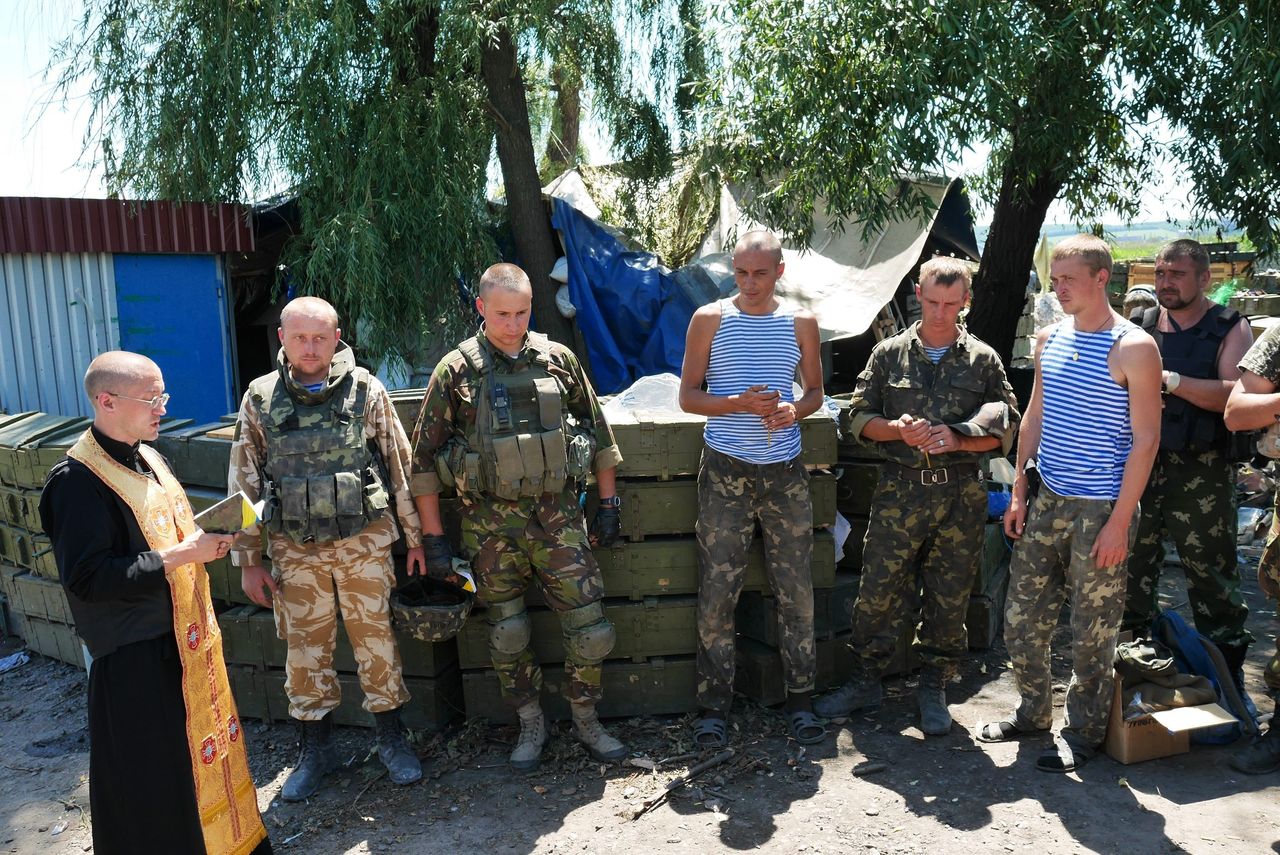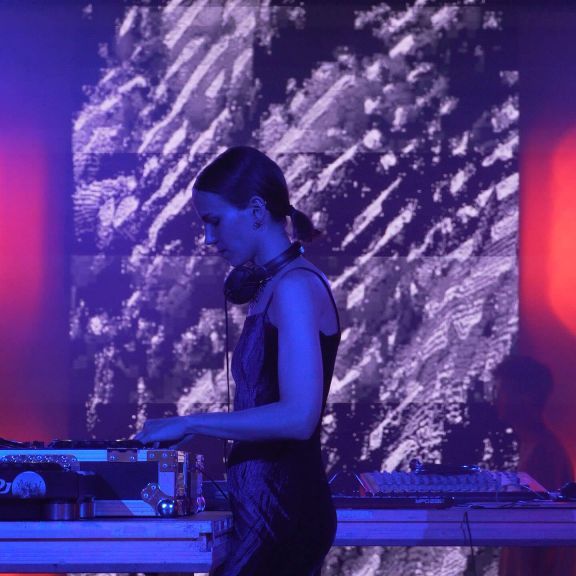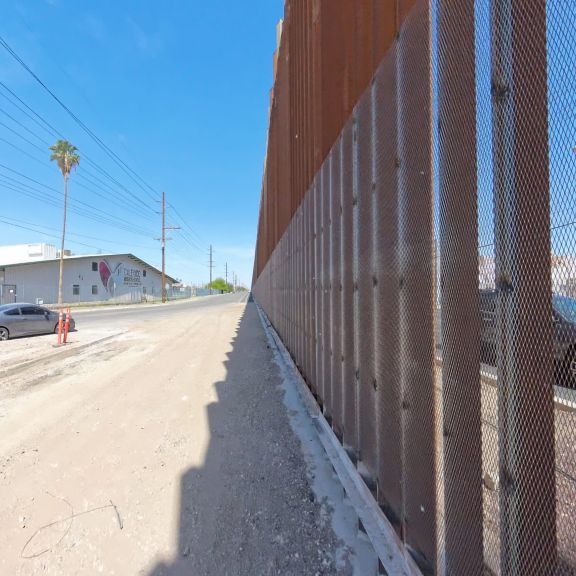
The President Petro Poroshenko officially asked the Patriarch of Constantinople, Bartholomew I, to issue a Tomos of Autocephaly of the Ukrainian Orthodox Church. The Verkhovna Rada of Ukraine supported Poroshenko, whose unexpected move caused numerous comments. The President’s critics claim it was all politically motivated. Less than a year remained till the next presidential election and Poroshenko losses its position in the pools. Moreover, Russia criticized his decision as the local church and the state authorities consider Ukraine to be the Russian canonical territory.
Poroshenko met with Patriarch Bartholomew on April 9, but his decision was made public only on April 17 during a meeting with the leaders of parliamentary factions. The President stressed that the decision was supported by the bishops of the Ukrainian Orthodox Church of the Kyivan Patriarchate and the Ukrainian Autocephalous Orthodox Church, but also added that “the door remains open” to the bishops of other Orthodox churches.
– This event in the history of independent Ukraine will take place in difficult times so that we would have our universal autocephalous Orthodox church, connected by prayers with other Orthodox churches, but administratively independent of Moscow or anyone else – emphasized Poroshenko, who himself belongs to the Ukrainian Orthodox Church (Moscow Patriarchate).
The President expressed hope that the decision will be taken this year – the 1030th anniversary of the Ruthenia – Ukraine baptism. At the same time, he stressed that the Orthodox Church in Ukraine would not become national. Moreover, the faithful who want to remain in the Ukrainian Orthodox Church (Moscow Patriarchate), would have the freedom of choice.
Poroshenko asked the Verkhovna Rada to support the idea of an independent Church and his request addressed to Patriarch Bartholomew. On April 19, the Parliament backed the President. The Opposition Bloc voted against.
The problem is the dependence on Russia
The representatives of the Ukrainian Orthodox Church (Moscow Patriarchate) believe that the President’s initiative will fail. In their opinion, the process “should be started with the Moscow Patriarchate, not with “the separatist factions”. Anyone, who is not associated with the Russian Orthodox Church, is considered as a separatist by the Moscow Patriarchate.
The co-chair of the Opposition Bloc, Vadim Novinski, has the same view. He says that the Patriarch Bartholomew will not support Poroshenko’s request, and the President “cheats the nation.” Nowinski is a very religious billionaire and in close relations with the Russian Orthodox Church (Moscow Patriarchate) and the Ukrainian Orthodox Church (Kyivan Patriarchate).
The Kremlin also opposed the initiative of the Ukrainian President. The spokesperson of President Putin, Dmitry Peskov, said that Russia does not support actions “aimed at breaking up the Church”. Issuing a Tomos of Autocephaly of the Ukrainian Orthodox Church would be a huge blow for Russian Orthodox Church, which still considers Ukraine as its canonical territory.
The division of the Orthodox Church in Ukraine still remains. The three main branches are represented by: the Russian Orthodox Church (Moscow Patriarchate), the Ukrainian Orthodox Church (Kyivan Patriarchate) and the Ukrainian Autocephalous Orthodox Church.
Established in 1990, the Russian Orthodox Church (Moscow Patriarchate) considers itself the only legal Orthodox Church in Ukraine according to the canon law. It has a large autonomy, but it is subordinate to the Russian Orthodox Church.
A part of the Ukrainian Orthodox ministry, supported by some politicians, tried to establish a Ukrainian Autocephalous Orthodox church in the early 1990’s. When the Russian Orthodox Church refused to accept the Ukrainian autocephaly, the ministry formed the Ukrainian Orthodox Church (Kyivan Patriarchate). It is commonly considered, in contrast to the Moscow Patriarchate, as patriotic and pro-Ukrainian. Despite the lack of the canonical status, it has recorded the greatest growth of the faithful in recent years, ahead of the Russian Orthodox Church (Moscow Patriarchate).
The Ukrainian Autocephalous Orthodox Church was established in 1919 and abolished before the outbreak of World War II because of repression against the clergy and the faithful. However, it survived in exile and it re-established itself in Ukraine, along with the liberalization of various areas of life, at the end of the Soviet Union existence.
There are no fundamental dogmatic or ritual differences between these three branches of the Orthodox Church. They differ primarily in their status in the Orthodox Church in the world. The Russian Orthodox Church (Moscow Patriarchate) is considered as canonical. The Razumkov Center report from 2000 stated: “Two problems are at the forefront of the relationship between different branches of the Orthodox Church: the attitude towards the Ukrainian state and the understanding of the Ukrainian national character.”
The critics accuse the Ukrainian Orthodox Church of the Kyivan Patriarchate of supporting the Kremlin’s policy in Ukraine and the pro-Russian attitude. The Russian Orthodox Church refers to the common historical roots and faith that joins the Russians and Ukrainians.
There are still some conflicts about the church buildings between the Ukrainian Orthodox Church (Kyivan Patriarchate) and the Russian Orthodox Church (Moscow Patriarchate) in some regions of Ukraine. The conflict has intensified after the annexation of Crimea and the outbreak of war in Donbas in 2014. Ukrainian patriots and nationalists accuse the Russian Orthodox Church (Moscow Patriarchate) of supporting Russia and are against expanding its influence.
The Orthodox Church and the politics
The President of Ukraine is accused of using the subject of autocephaly for political purposes by the Russian Orthodox Church (Moscow Patriarchate), opposition, experts and Russian politicians. The presidential election will be held in less than a year. The latest pre-election rankings show Poroshenko’s weakening position. Few months ago, the polls showed that he would meet Yulia Tymoschenko in the second round of election. Nowadays it is not clear.
Is autocephaly just a part of his political game? Roman Romaniuk, the journalist of Ukraińska Prawda, writes in the article titled “Chosen by God – President Poroshenko” that it is “a great political game in which the President tries to “use the church”. Iit can bring him great benefits. Stakes are high. So is the risk”.
What is the potential benefit? If Constantinople recognized the Tomos of Autocephaly of the Ukrainian Orthodox Church, Poroshenhko would get the support of several million members of the Ukrainian Orthodox Church (Kyivan Patriarchate) and the Ukrainian Autocephalous Orthodox Church. However, the risk is a further division of Ukrainian society on the ground of religion. In addition, the formation of an independent canonical Ukrainian Orthodox Church would significantly weaken the position of Russian Orthodox Church – one of the foundations of the so-called “Russian world”. Therefore, it is not known what the Russian reaction could be.
– I would like to emphasize that the Ukrainian Orthodox Church, the universal Ukrainian Autocephalous Orthodox Church, is the key element of our statehood and our independence. The army defends the Ukrainian ground, the language defends the Ukrainian heart, and the Church defends the Ukrainian soul – President Poroshenko said in a popular talk-show Swoboda Słowa on the ICTV channel earlier in April. Poroshenko added – Currently we find ourselves in a fatal situation: Ukraine is recognized as the canonical territory of the Russian Federation. Doesn’t it sound like territorial claims? I am convinced and most of the Ukrainians are convinced, that the canonical territory of Ukraine is Ukraine. And there is no other way.
One can only add that President Poroshenko appearance in the talk show resulted in even more comments about the political background of the process of creating an independent Ukrainian Orthodox Church. Besides, the President stated in a television speech that the creation of an independent universal Church was one of the key points of his electoral program in 2014 and he has worked on it for four years.
Will the President manage to achieve his two goals: to make his mark in history as the one that contributed to the creation of a universal, fully independent and recognized Ukrainian Orthodox Church, and to win the next elections? Synod of the Patriarchate of Constantinople is to consider the Ukrainian request to issue a Tomos of Autocephaly of the Ukrainian Orthodox Church at the beginning of June. How will this affect the political prospects of President Poroshenko? Ukrainian citizens will respond in the end of March 2019.
Photo: A service for Ukrainian soldiers on the frontline near Sloviansk, June 2014.






















